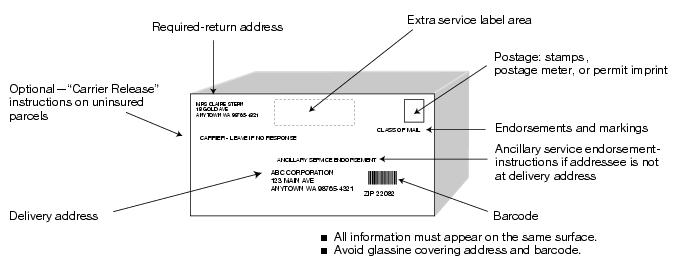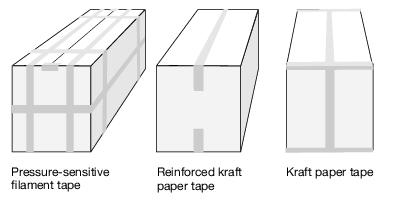|
|
|
Quick Service Guide 401aCommercial ParcelsDesigning Parcels for Automated ProcessingMay, 11 2009 Related QSGs 440a, Standard Mail Machinable Parcels 460, Bound Printed Matter Irregular and Machinable Parcels Physical Standards (401) Minimum weight: 6 ounces except under 401.1.5.2. Standard Mail: maximum weight is less than 16 ounces. Bound Printed Matter: maximum weight is 15 pounds. Parcel Select: maximum weight is 35 pounds (25 pounds for books and other printed matter). Dimensions: 6 to 34 inches long, 3 to 17 inches high, and 1/4 to 17 inches thick. Parcels 1/4 inch thick must be at least 3-1/2 inches high and 6 inches long. For an overview of the physical standards for commercial parcels, see Quick Service Guide 401. Eligibility Standards Parcels are nonmachinable if they meet any of the criteria in 401.2.3. Machinable parcels must bear the correct readable GS1-128 barcode under 708.5.0. Barcoded discount: Package Services (Parcel Select, Bound Printed Matter, Media Mail, and Library Mail) barcoded discount pieces must meet the standards in 708.5.0. Package Services barcodes may be combined with Delivery Confirmation or Signature Confirmation and insurance barcode. Standard Mail barcodes may be combined with electronic Delivery Confirmation and insurance. Standard Mail and Package Services barcodes must be prepared with the address and barcode placed squarely onto the largest surface area of the parcel except when the shape and contents require specific orientation for stability during processing. The barcode should be placed immediately adjacent to the delivery address and no closer than 1/2 inch from the edge of the parcel. Acceptable Container (601.3.0) Use sturdy materials to withstand handling. Size must be adequate to contain items and provide space for cushioning material:
Cushioning (601.4.0) Cushioning absorbs shock and vibration of handling. Combinations of cushioning materials are most effective. Cushion items separately. Closure and Sealing (601.4.0)
Mail Preparation Barcodes: First-Class Mail: Unless prepared in 5-digit/scheme containers or paid at a single-piece price, presorted parcels are subject to a $0.05 surcharge if: Standard Mail Parcels and Not Flat-Machinables: Unless prepared in a carrier route or 5-digit/scheme containers, Standard Mail parcels and Not Flat-Machinable pieces are subject to a $0.07 surcharge if: The GS1-128 barcode is required when used on all other parcels. Parcels must be prepared and marked under applicable standards for machinable parcel preparation:
For pallet preparation, see 705.8.0. For combined mailings of Standard Mail and Package Services parcels, see 705.6.0.
|
|||||||||


